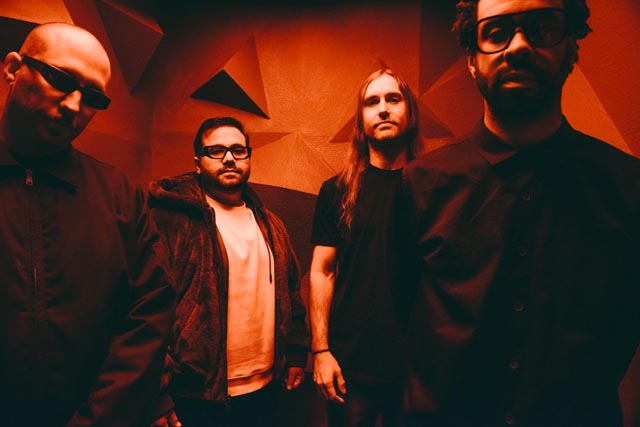
If you’re a regular reader of Machine Head frontman Robb Flynn’s “The General’s Journals,” you know pretty much all of his thoughts, since it’s pretty much unfiltered musings from one of the more outspoken vocalists in metal. For his most recent one, last Tuesday, he wrote about streaming and suggested that metal “stop demonizing streaming, and convince… fans to embrace it.” Metal still sells physical copies, much more than the pop music that Flynn mentions, but since Billboard started counting 1,500 streams from an album equivalent to an album sale, artists like Drake, who sold 30,000 CDs two weeks ago, saw his number increase to 124,000 when streams were countered in. It’s impressive, but it begs the question – how does this apply to metal?
Bram: Flynn’s post is a good primer as to how the industry works right now. There are some that have put off streaming, for whatever reason, but I embrace it. As an artist myself, however, I know that streaming isn’t going to pay the bills. Then again, even if it was based of CD sales alone, it would be hard for many artists to make money if they’re signed to a label.
At this point, most people know about music streaming, and Flynn telling them to embrace it is probably preaching to the converted. There are many people that still want to own their music. I’m hard-pressed to find any artists “demonizing” streaming, except for the few artists that haven’t licensed their music to Spotify, Apple Music and Tidal. But Drake’s album is a whole other animal. All those “Hotline Bling” streams from last year? They all counted towards (and still count towards) his album streams. Of course pop music will always have more streams, but metal fans are more loyal, so 10 years from now when all the one-hit or one-album wonders fade away, metal fans will still be streaming, which is where Flynn’s argument starts making sense.
Matt: I can’t say I’ve heard any major opposition to streaming in the metal scene, but I that doesn’t mean it doesn’t exist. After all, we still have people that like to point out how much better vinyl sounds compared to MP3 and that owning an original Master of Puppets pressing somehow makes them a more loyal fan. And they probably also hate the The Black Album.
Streaming is just the name of the game nowadays, and I think most bands not named Tool have come to accept that. A very small percentage of bands become big money makers anyway, so not steaming your music doesn’t really benefit you in any way apart from still owning your music. But what good is it if no one hears it? Newer metal bands like Ghost Bath started streaming to Bandcamp which, while not quite the same as Spotify or Apple Music, involves putting all your music out there without any immediate results until the buzz gets out there. Now they’re signed to Nuclear Blast and streaming on the aforementioned services that only serve to spread their music and straighten their future. The way things work today with album sales, streaming is just a that flow everyone ought to go with.
Chris: Streaming impacts metal just as much as any other genre, there is no denying that. Some people buy premium memberships to Spotify and Apple Music for the sole purpose of being able to stream whatever they want, whenever they want, and it’s a certainty that some of those people are metal fans that don’t want to have to buy every single album that appears on a weekly basis. However, I believe that metal also benefits the most from streaming, because metal fans are the ones most likely to go buy an album that they like after streaming it. I may be naive in my thinking that, but nearly every discussion I’ve had with metal fans about streaming and/or piracy has included this point. At the end of the day, most metal fans want to monetarily support the bands that they truly appreciate, and this is how they are able to do that in the most impactful manner.
Alix: For the past few years, I have changed the way I consume my metal and that’s been majorly influenced by streaming services. When Spotify started gaining momentum in the industry, I got their premium account to see how could that benefit me against the traditional way I’ve listened for years and came to realize I prefer it. While many of us still have a preference of getting physical copies for different reasons than the sound quality, online streaming has become the biggest outlet to increase our music collection. Nowadays, Bandcamp and YouTube have become my main sources to discover new music from bands who aren’t big enough to get into Spotify or Apple Music and can only manage to self-release an EP in hopes of getting anyone’s attention in the process.
Flynn’s argument is that it’s the future and there’s nothing we can do about it, regardless of our passion of collecting vinyl, cassettes and CD’s. Eventually, all our entertainment will be delivered in this fashion, but we’re still in that transition period. Netflix, Amazon Prime, Google Play and even HBO are taking advantage of the internet and decided to leave behind the traditional entertainment mediums. Music is no different. At this point, physical formats are nothing more than just novelty products and will cease to be the main source of income to labels and will eventually kill distros and record stores. The Buggles said it best at the time and we’re about to see the same changes very soon: Online streaming will kill the CD and vinyl stars.
(outdated) Photo via [Wall Street Journal]












